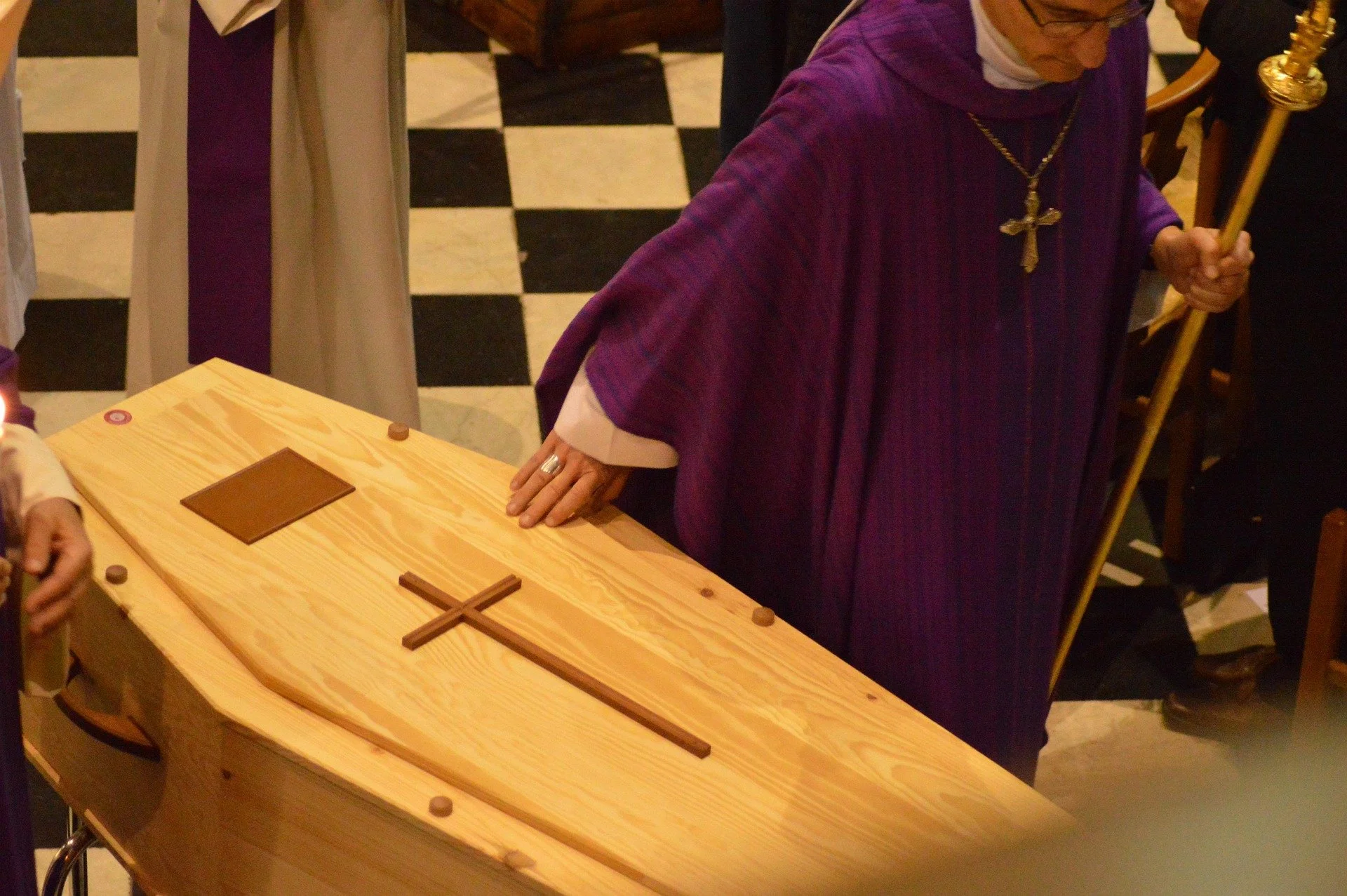Please explain what it means to be a registered member of a parish and that people can request a Funeral Mass in a church where they might not be “officially registered.”
by Fr. Mark Steffl, STL, JCL
Can. 515 §1 A parish is a certain community of the Christian faithful stably constituted in a particular church, whose pastoral care is entrusted to a pastor as its proper pastor under the authority of the diocesan bishop.
Can. 518 As a general rule a parish is to be territorial, that is, one which includes all the Christian faithful of a certain territory. When it is expedient, however, personal parishes are to be established determined by reason of the rite, language, or nationality of the Christian faithful of some territory, or even for some other reason.
Can. 519 The pastor is the proper pastor of the parish entrusted to him, exercising the pastoral care of the community committed to him under the authority of the diocesan bishop in whose ministry of Christ he has been called to share, so that for that same community he carries out the functions of teaching, sanctifying, and governing, also with the cooperation of other presbyters or deacons and with the assistance of lay members of the Christian faithful, according to the norm of law.
To answer this question, it is first important to look at the law of the Church that defines what a parish is and how an individual is a member of a parish, as well as the responsibilities that are given to the pastor of a parish.
The first section of canon 515 establishes that a “particular church” (which here is a synonym for “diocese”) is to be divided up into parts which are called parishes. Each of those parishes is to have a priest who is appointed to provide pastoral care for the members of that parish both in the name of, and under the authority of, the diocesan bishop.
Next, canon 518 directs that normally a parish is to have a defined geographical territory with boundaries to it, and that all members of the Church who live within those boundaries are understood to be members of that parish, whether they are officially registered or not, and that there is a priest that has the responsibility to provide spiritual care for those who live within that territory.
The second part of canon 518 provides for the possibility of “personal parishes” that do not have a defined territory, but are erected by a diocesan bishop for a specific group of the Christian faithful who meet some defined criteria. Examples of such parishes might be a specific linguistic need for immigrants from a certain country or region, or some other need such as a particular parish on the campus of a large university. As a point of interest, the Diocese of New Ulm only has “territorial parishes.”
In canon 519, the Church directs specifically that the pastor of a parish is responsible for all the pastoral care of those who have been entrusted to him, and that he is responsible to the diocesan bishop in the exercise of that pastoral care.
This canon also establishes a broader right on the part of the Christian Faithful, no matter where they might happen to live, to know they have a pastor who is responsible for their spiritual needs. It also provides for that pastor to have assistants: priests that are assigned to assist him in his responsibilities outlined by Church law.
The system of “registering” with a parish in an official way is something that developed organically over time, and in different ways in different parts of the world. In the United States, it has provided a way of being able to know how to contact parishioners, for example, through mailings and to encourage stewardship and involvement on the part of the parish and to add to the personal identity of the members as to what it means to be a member of that particular parish.
In past decades, it was much more commonly understood that a member of the Christian Faithful should only go to the parish in which he/she geographically lived—and in the past, there were pastors who enforced this more rigorously (and this exists to a greater extent yet in some places in the United States).
But today, with easily-available transportation and demographic changes, it is more common for people to go to Mass – or even send their children to a parish school – that might be outside of the parish within which they geographically live, especially in areas of larger population that might have several parishes available in close proximity. This makes the idea of “registering” in a parish more practical, and can even assist a pastor to know and communicate with his parishioners.
In light of all this, the question that was proposed by a priest for the topic of this article is important, because there are many reasons today why someone might ask to have a funeral Mass in a parish where they are not formally registered. Today, it is common for people to move away for medical needs or other care that they might require elsewhere. So in the case of a funeral, the parish where a person was present or staying at the end of their life can provide for a funeral, even for an individual who is not a “registered member” there. The Church is always mindful of the corporal work of mercy of “burying the dead.”

